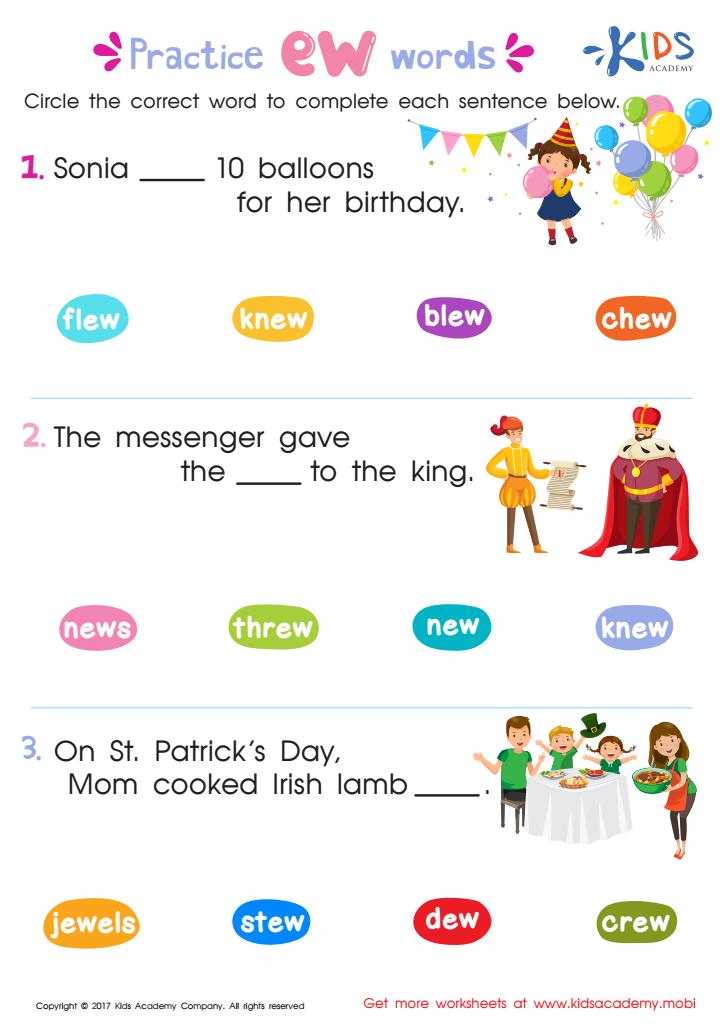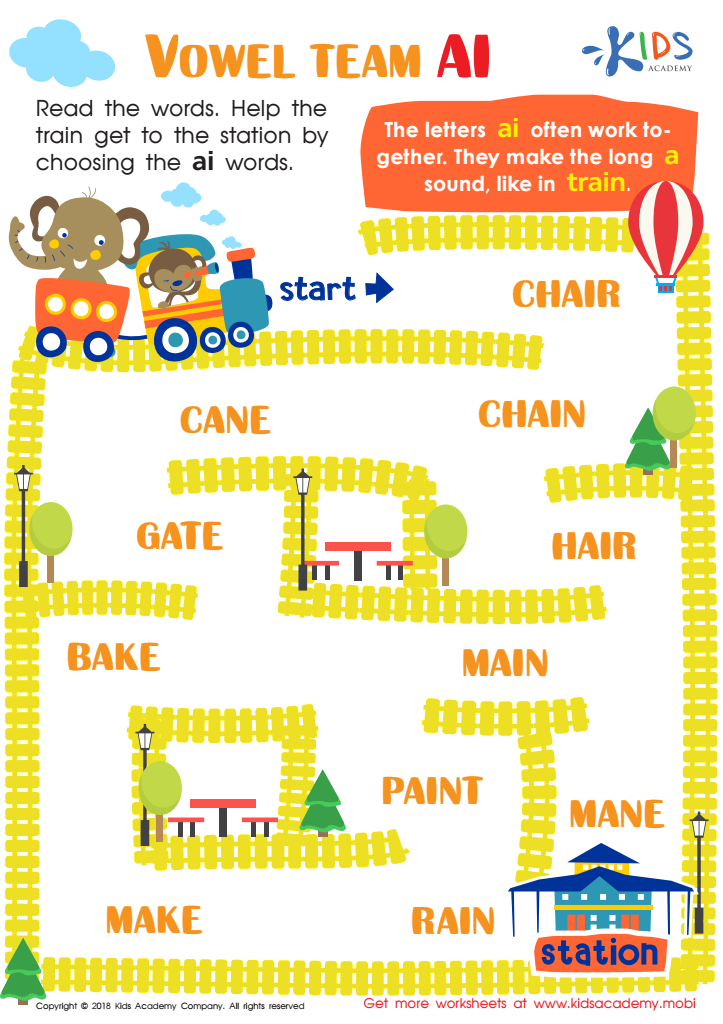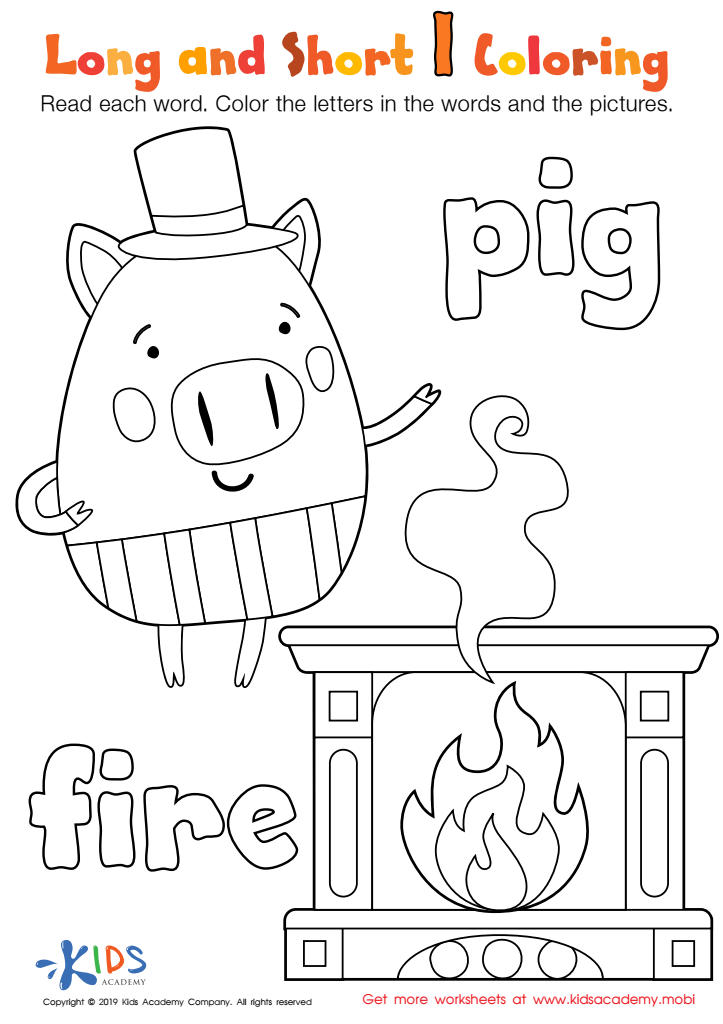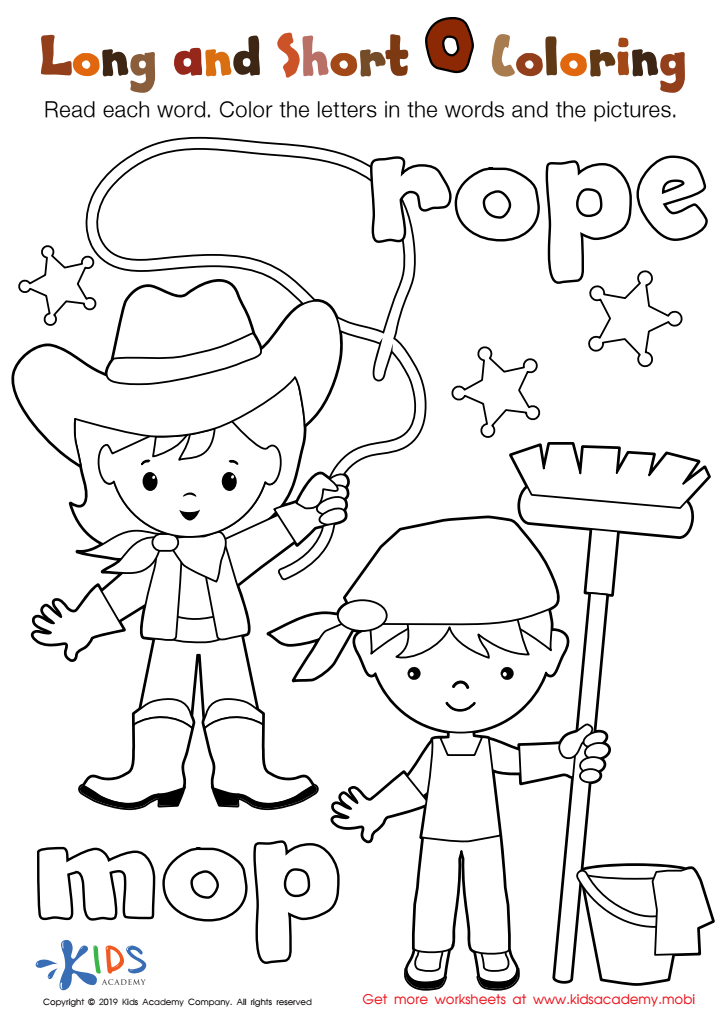Phonics skills development Normal Phonics Worksheets for Ages 6-8
4 filtered results
-
From - To
Discover engaging and effective phonics skills development worksheets designed specifically for children ages 6 to 8. Our printable normal phonics worksheets provide a comprehensive approach to developing essential reading and writing skills. Each worksheet includes fun activities that promote letter recognition, sound-letter correspondence, and blending techniques, tailored to enhance young learners' phonetic understanding. With a variety of interactive exercises, students will gain confidence in decoding and writing words while fostering a love for reading. Start enriching your child’s literacy journey today, ensuring a solid foundation for their academic success! Explore our collection and empower your child's learning experience!


EW Words Worksheet


Vowel team ai Worksheet


Long and Short I Worksheet


Long and Short O Worksheet
Parents and teachers should prioritize phonics skill development for children ages 6-8 because it forms the foundation for successful reading and writing. Phonics teaches children the relationship between letters and sounds, allowing them to decode words quickly and accurately. Mastering these skills promotes confidence in young learners, enabling them to tackle more complex texts as they progress.
Early phonics instruction is linked to improved literacy outcomes. Children who become proficient in phonics demonstrate stronger comprehension skills, as they can focus on understanding content rather than struggling to read individual words. Furthermore, phonics supports vocabulary growth, enhancing communication skills and overall academic success.
Additionally, strong phonics skills foster a love of reading by making it an enjoyable, engaging activity rather than a daunting task. As children learn to read independently, they discover new information and ideas, encouraging curiosity and lifelong learning.
Finally, collaboration among parents and teachers in phonics education reinforces its importance. At home, reading together and engaging with phonics resources can strengthen skills, while in the classroom, systematic instruction ensures all children grasp key concepts. Prioritizing phonic development ultimately sets children on a path to literacy success, impacting their educational experiences for years to come.
 Assign to My Students
Assign to My Students















